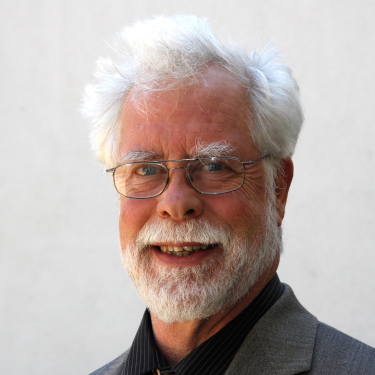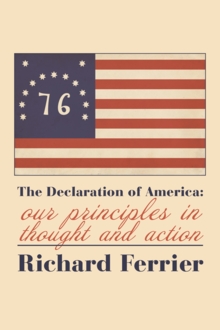- Home
-
About
 Fidelity & Excellence
Fidelity & ExcellenceThomas Aquinas College is unique among American colleges and universities, offering a faithfully Catholic education comprised entirely of the Great Books and classroom discussions.
-
A Liberating Education
 Truth Matters
Truth MattersTruth, and nothing less, sets men free; and because truth is both natural and supernatural, the College’s curriculum aims at both natural and divine wisdom.
-
A Catholic Life
 Under the Light of Faith
Under the Light of FaithThe intellectual tradition and moral teachings of the Catholic Church infuse the whole life of Thomas Aquinas College, illuminating the curriculum and the community alike.
-
Admission & Aid
 Is TAC Right for You?
Is TAC Right for You?Do you enjoy grappling with complex questions? Are you willing to engage in discussions about difficult concepts, with the truth as your ultimate goal?
-
Students & Parents
 Mind, Body & Spirit
Mind, Body & SpiritThere is always something to do at TAC — something worthwhile, something fulfilling, and something geared toward ever-greater spiritual and intellectual growth.
-
Alumni & Careers
 What Can You Do with a Liberal Education?
What Can You Do with a Liberal Education?Nothing speaks more to the versatility of the College’s academic program than the good that our alumni are doing throughout the Church and the world.
- Search
- Giving
Tutor Dr. Richard Ferrier Authors New Book, The Declaration of America
 “Come back to the truths that are in the Declaration of Independence,” Abraham Lincoln passionately implored the citizens of Illinois in 1858. More than 160 years later, Dr. Richard D. Ferrier, a tutor at Thomas Aquinas College, California, no less passionately echoes Lincoln’s plea. In his upcoming book, The Declaration of America, Dr. Ferrier makes the case for how and why Americans must shape their civic sentiments according to the country’s founding document.
“Come back to the truths that are in the Declaration of Independence,” Abraham Lincoln passionately implored the citizens of Illinois in 1858. More than 160 years later, Dr. Richard D. Ferrier, a tutor at Thomas Aquinas College, California, no less passionately echoes Lincoln’s plea. In his upcoming book, The Declaration of America, Dr. Ferrier makes the case for how and why Americans must shape their civic sentiments according to the country’s founding document.
In one form or another, The Declaration of America has existed for almost 25 years, first taking shape through Dr. Ferrier’s friendship with Alan Keyes, a former Reagan Administration official who mounted several bids for the presidency in the 1990s. “Alan believed that the spirit of the country is the Declaration,” says Dr. Ferrier. In his many speeches, Mr. Keyes intimated a vision for American statesmanship animated by that spirit. He eventually asked Dr. Ferrier, a member of his campaign staff, to write a book “that would lay out more systematically what he had been saying in his speeches.”
With co-author and fellow tutor Dr. Andrew Seeley (’87), Dr. Ferrier completed the first edition of that book in time to distribute copies at campaign rallies in 2000. “It was practically what they would call in the Soviet Union a samizdat publication,” he laughs,” mimeographed in a basement and circulated.” Despite its cosmetic humility and the campaign’s ultimate failure, the book proved a source of enduring fascination for many.
To satisfy that fascination, Dr. Ferrier and Dr. Seeley revised the campaign booklet into a civics textbook for highschoolers, entitled Declaration Statesmanship, which Dr. Ferrier himself taught in his free time for the homeschool community in Santa Paula, California. But recently, prompted by a growing skepticism about America’s founding values, he undertook yet another, more substantial revision — once more aiming at the general citizen.
“It’s an attempt at patriotic persuasion and self-knowledge for the American citizen, and it ends with a question: Are we worthy of the Declaration in our times?” says Dr. Ferrier. “In that way it’s like a sermon on the lives of the saints followed by, ‘Are you up to it?’” Like any great preacher, Dr. Ferrier has two audiences in mind. “I want to preach to the choir and convert the heathen,” he laughs.
 First are those who are sympathetic to Dr. Ferrier’s admiration for the American republic, but who lack the knowledge and expertise to defend its credibility. “The Republican party published the Lincoln-Douglas debates in 1859 because they wanted people to get Lincoln’s arguments about how the nation should stand with respect to slavery,” he explains. “I would like to be a minor-league Lincoln to my fellow citizens of today.”
First are those who are sympathetic to Dr. Ferrier’s admiration for the American republic, but who lack the knowledge and expertise to defend its credibility. “The Republican party published the Lincoln-Douglas debates in 1859 because they wanted people to get Lincoln’s arguments about how the nation should stand with respect to slavery,” he explains. “I would like to be a minor-league Lincoln to my fellow citizens of today.”
At the same time, however, Dr. Ferrier hopes the book will fall into less sympathetic hands. “A coalition of people holds hostile views of America’s founding,” he says — although this “coalition” is not a unitary movement. “Some call themselves integralists, and some postliberal; there are elements of romantic agrarianism, with an overheated hostility to technology.” Regardless of their designations, Dr. Ferrier contends that such people “don’t know what they are criticizing when they criticize the American founding.” In particular, he adds, “they underestimate the religious dimension and attention to the common good in the American tradition. They could benefit from the things I bring up in the book.”
The book, which will be released December 30 but is available for pre-order through St. Augustine’s Press, is “a work of public rhetoric,” concludes Dr. Ferrier, appealing both to the head and the heart. “A clear head with a dead heart is a dead body, but all heart with no head is blind — you want both,” he says. “That is what I want to do for the American republic: I want to clear people's heads and warm people's hearts.” The Declaration of America will do just that.

